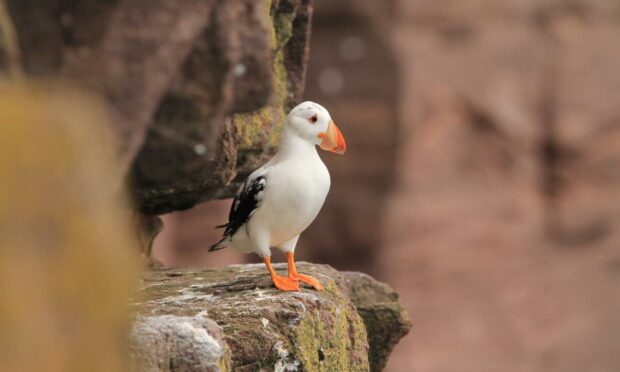A very rare white puffin has been spotted by rangers from the Scottish Wildlife Trust on an island off the Sutherland coast.
The puffin has a genetic condition called leucism, giving it white feathers that distinguishes it from its black-and-white neighbours on the Handa Island Nature Reserve.
It was first spotted last month by seabird fieldworker Dora Hamilton, one of six people who live on the island from March until September to monitor the local wildlife and carry out conservation programme.
Due to the puffin’s late arrival on the island and behaviour, it is believed to be a young bird that is not yet able to breed.
Erika Faggiani, one of the Scottish Wildlife Trust‘s Handa Rangers, said: “When you live and work on Handa you are surrounded by amazing wildlife all the time, but this leucistic puffin is one of the most unusual things I’ve seen in my three seasons on the island.
“This is a very rare sighting. There are only a small number of reports of leucism at seabird colonies around the UK, including one puffin which bred on Handa in 2018 and 2019 which had light brown feathers instead of black.”
Twitchers may be disappointed
Leucism is similar to albinism as it also results from a lack of melanin production, but leucistic individuals can be distinguished by the colour of their irises: their eyes remain dark, while albinos’ are pink.
Erika added: “The puffin has only been seen occasionally and it seems to be spending most time in areas where members of the public could not easily spot it, so anyone coming to Handa to see this puffin is likely to be disappointed.
“But visitors can still look forward to seeing and hearing crowds of seabirds, including puffins, guillemots and razorbills, on the reserve’s tall cliffs.”
